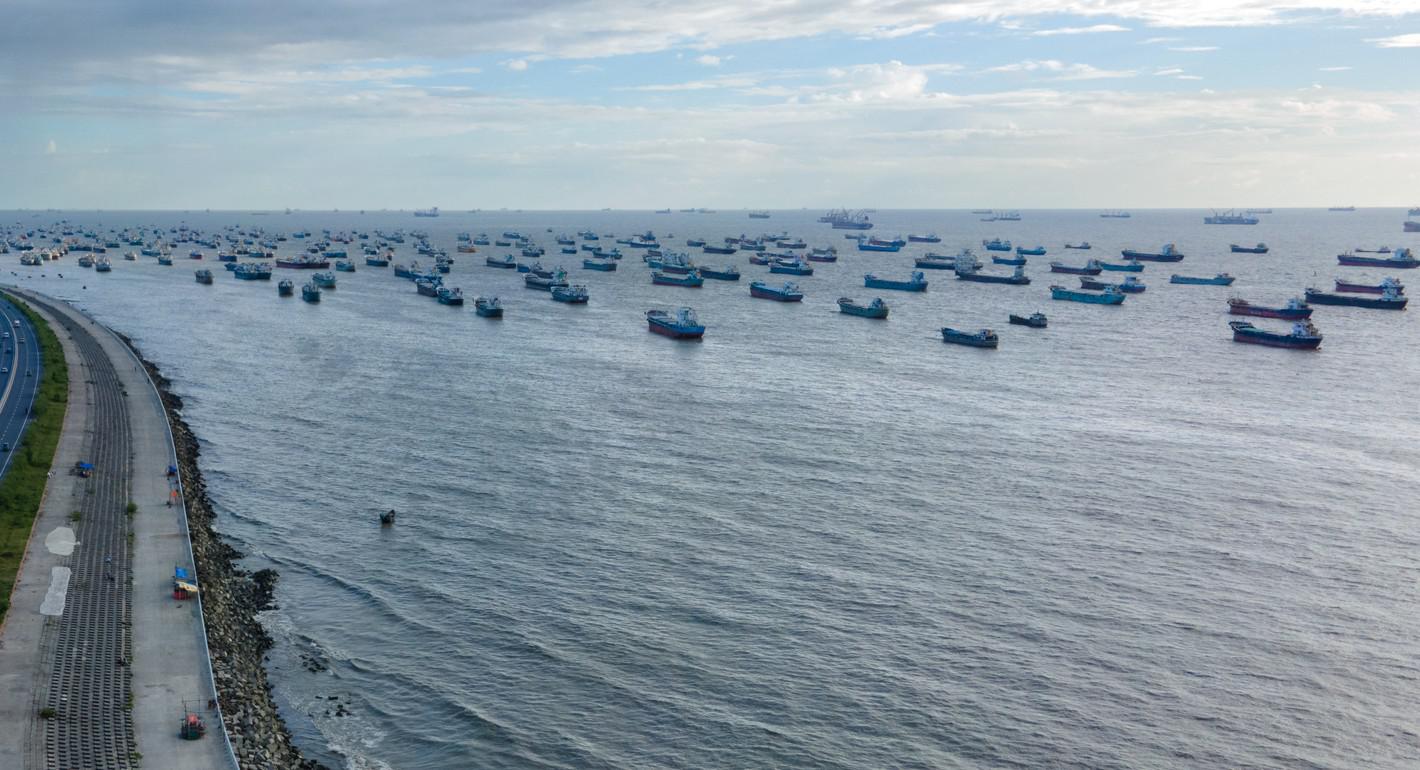The Indo-Pacific region, extending from the Indian Ocean to the Western Pacific and interconnected via the Strait of Malacca, stands as a key trade hub, housing half of the world’s population. Its geopolitical significance, financial strength, and strategic importance became evident after the industrial revolution in South Asia around 1980s, as the interest of major powers shifted from Europe to Asia due to critical maritime routes and key economic zones that facilitate international trade and energy supply chains. This vast expansion includes vital sea lanes and economic zones that support global supply systems for energy and trade. According to a 2022 United States government analysis report, by 2024, the Indo-Pacific region is projected to contribute 50 percent of the global GDP and manage 80 percent of maritime oil shipments.
There is considerable geopolitical struggle in the Indo-Pacific Region, specifically between the US and China. The regional framework is being shaped by the military build- up, economic investments, and geopolitical efforts of both countries. China is broadening its reach through territorial claims, military modernization, and economic corridors like the Belt and Road Initiative (BRI), while the US strives to keep its influence through alliances, military presence, and economic efforts. This competition, unsolved territorial disputes, and the involvement of regional actors have created a complicated and multidimensional geopolitical landscape. The Indo-Pacific’s stability in the years to come depends on these nations’ ability to control their rivalry, resolve conflicts in the region peacefully, and promote sustainable economic growth.
The Indo-Pacific region is crucial for the US, as highlighted in the NSS 2022, focusing on economic, diplomatic, military, and technological advancements. According to statistics released by the U.S. Bureau of Economic Analysis, U.S. direct investment abroad position or aggregate level of investment, increased by $364.0 billion to $6.68 trillion at the end of 2023 and Alliances like QUAD, I2U2, and AUKUS exemplify strategic military cooperation to counter China’s influence, such as Australia’s decision to buy eight nuclear submarines from the US and UK in September 2021. The US is also conducting the major military exercise RIMPAC 24, involving 29 countries from June 26 to August 2, 2024. Meanwhile, China and Russia are conducting naval exercises in the Pacific to assert their presence.
The geopolitics of the Indo-Pacific Region is dominated by China’s territorial ambitions and the USA’s strategic initiatives, including the National Security Strategy (NSS) and the Indo-Pacific Strategy 2022, which encourages India to act as a Net Security Provider in the Indian Ocean Region to counter China. Many nations, considering India as a friend, have sided with the US strategy, including Bangladesh, South Korea, Japan, Canada, and South Korea.
Southeast Asian countries are concerned of Chinese naval activities, conflicts over territory become more serious by events such as the Chinese navy presenting a threat to Philippine ships inside the Philippine Exclusive Economic Zone. The South China Sea remains unstable due to overlapping claims by China, Taiwan, Vietnam, the Philippines, Malaysia, and Brunei, leading to significant tensions and conflicts.
To counterbalance China, the US has established military bases in South Korea, Japan, and the Philippines. China’s “String of Pearls” strategy includes naval bases from China to Djibouti, protecting its shipping routes, and military bases in Djibouti and Cambodia. The US has countered this with the Indo-Pacific Economic Framework (IPEF), involving 13 countries and a $48 billion budget, though it has yet to produce significant results. Conversely, China’s $962 billion investment in the BRI has bolstered its global economic influence and military capabilities, including arms supplies to countries like Pakistan, Bangladesh, and Vietnam. US estimates suggest that the Chinese Navy will be the strongest in the world by 2050. The geo-strategic dispute between China and the US over the Indo-Pacific is intensifying, with both nations seeking dominance. The regional stability hinges on US-China relations, despite US pressure, as China remains the biggest trading partner for many countries, highlighting its importance.
Maritime security in the Indo-Pacific involves both unilateral and multilateral initiatives to reduce security risks and improve stability. Successful alliances in the region include ASEAN, BRICS, SCO, APEC, ReCAPP, IORA, QUAD, AUKUS, and I2U2, with China and the US participating in various forums. The region’s stability depends on the US- China relationship, even as China remains a critical trade partner for many countries.
The Indo-Pacific area is important to the littoral nations as well as the global economy because any disruption could have far-reaching impact on the world finances. The world cannot afford another war, so the tension between the US and China must not turn into action. Pakistan’s approach to the maritime security in the Indo-Pacific region relies on acceptance of international law, multilateral collaboration, and peaceful coexistence. Pakistan promotes beneficial dialogue and diplomacy as a means of peacefully resolving issues between major powers such as the United States and China, given its strategic interests in the region. Actively participating in regional forums and promoting joint naval exercises and information-sharing, Pakistan aims to enhance trust and cooperation among the Indo-Pacific Region nations. By supporting initiatives like the Belt and Road Initiative (BRI) and the China-Pakistan Economic Corridor (CPEC), Pakistan seeks to support economic growth and stability in the area. The Indo-Pacific region’s maritime security ultimately depends on collaboration, respect of international norms, and strategic vision.

Table of Contents
ToggleKainat Rasheed
Kainat Rasheed, an International Relations student at Bahria University Islamabad, is part of different volunteer organizations and her Interest areas are Cyber warfare, Maritime Security, and Women's Rights.













